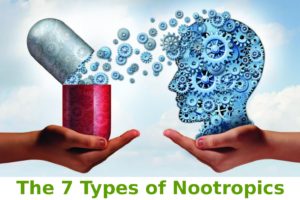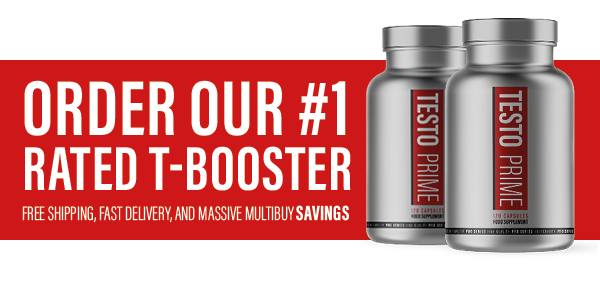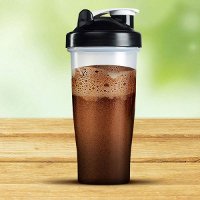With the promise of improved brain functions like memory retention, focus, and attention spans, nootropics offer countless benefits to students, working professionals, and others alike. And while some still worry about the potential side-effects of drugs, nootropics promise safety with little to no negative effects, making them a perfect choice for virtually anyone.
If you’ve been considering a nootropic stack to enhance your day-to-day functioning, you should also understand the full range of benefits you stand to gain by doing so. Below, we’re discussing the top 5 benefits of nootropics to give you just a small glimpse of the benefits, both cognitive and otherwise, you stand to gain.
Benefits of Nootropics
| Benefit | Description |
|---|---|
Improved Concentration | One of the foremost benefits of any type of nootropic is increased concentration. In fact, this benefit is common to racetams and vitamin b derivatives, amongst others. Most children and adults struggle with concentration, whether they’ve been diagnosed with a condition such as ADHD or just have a difficult time focusing on their own. With nootropics, you can eliminate feelings of forced concentration while focusing on important tasks for more than just 1 to 2 hours at a time. The best part is that nootropics maintain alertness and clarity of thought as well, keeping you motivated to stay on task. |
Enhanced Memory | Most people don’t struggle to read a textbook or learn new information. But when asked to recall the information later in the day or further in the future, most have a difficult time doing so. Nootropics support memory by repairing and enhancing memory-related functions such as your working memory and ability to recall new and existing information. Because many nootropics also boost brain cell growth and improve connections between neurons, you can recall information more quickly as you’ll experience greater synaptic plasticity (a benefit specific to ampakines). Cholines, racetams, and vitamin b derivatives are all known for enhancing memory as well, giving you multiple choices when building your stack. |
Improved Brain Health | Most of us don’t take care of their brains like we should. In fact, stressful, busy schedules coupled with poor health and dietary choices cause many issues and take a toll on our general brain health. Nootropics combat these negative effects by increasing oxygen flow to the brain while better maintaining neurons and other brain cells. This is the same reason why nootropics like vitamin b derivatives and cholines are a preferred choice for Alzheimer’s patients as it reduces the deterioration that occurs naturally with age. Further, several nootropics are known for promoting the growth of brain cells, which protects younger individuals as they age. As such, creating a stack that includes these types of nootropics is a preventative measure that will work to your benefit both now and in the future. |
Anti-Aging | Most individuals understand that stressors and diminished brain health result in common problems like poor memory. What some don’t know is that these same issues can cause premature aging and common problems like decreased metabolism, wrinkles, and impaired vision. You can combat these issues on your own by committing to a healthy lifestyle with regular physical activity, but the stressors and damage you’ve done to your brain remain. Luckily, nootropics can calm the brain while diminishing the damage done, reducing signs of aging in the process. |
Improved Mood | Reduced concentration and focus can be caused by any number of factors. However, one of the most common reasons you can’t focus is tied to your mood. Foul moods are often caused by irregular sleep patterns and poor eating habits. Nootropics improve mood by stimulating mood-enhancing receptors in the brain. This empowers people to overcome the anxiety, stress, depression, and other issues they’ve been experiencing, increasing focus and memory in the process. Vitamin b derivatives, like sulbutiamine, are closely tied to improved mood. |
The 7 Types of Nootropics

The 7 Types of Nootropics
Each type of nootropic stands distinct from the rest and while some have been around for decades since the initial discovery of nootropics, others are relatively new and were released only years ago. The seven types of nootropics include: Natural/Herbal, Racetams, Cholines, Peptides, Vitamin B Derivatives, Ampakines, and Smart Drugs.
Creating Your Perfect Stack Will Deliver These Benefits and More
When you want to access the full range of benefits nootropics have to offer, creating your own stack, or combination of various nootropics, can help you achieve just that. This means you will be able to enjoy the benefits above, as well as others you find unique to your own body and issues.
With these benefits and more, it’s simple to see why more and more people are turning to nootropics to intensify focus, improve memory, and to protect brain health, especially as they age. And when you want to do the same, all you have to do is begin your own nootropics regimen (trust us, you’ll be glad you did!).

NooCube ™ – Increase Your Brain function and power
Copywrite
This is an open access article distributed under the Creative Commons Attribution License, which permits unrestricted use, distribution, and reproduction in any medium, provided the original work is properly cited.
References & External links
- Gabryel, B., and H. I. Trzeciak. “Nootropics: pharmacological properties and therapeutic use.” Polish journal of pharmacology 46.5 (1994): 383. “This review summarizes the results of studies investigating the pharmacological properties, mechanisms of action, preclinical and clinical effects of nootropic drugs, and tries to integrate this knowledge in order to identify neuronal mechanisms underlying their therapeutic benefits and side effects.“
- Joshi Pranav, C. “A review on natural memory enhancers (Nootropics).” Unique Journal of Engineering and Advanced Sciences 1.01 (2013): 8-18.
- Cakic, Vince. “Smart drugs for cognitive enhancement: ethical and pragmatic considerations in the era of cosmetic neurology.” Journal of medical ethics 35.10 (2009): 611-615. “Reports in the popular press suggest that smart drugs or “nootropics” such as methylphenidate, modafinil and piracetam are increasingly being used by the healthy to augment cognitive ability.“
- Jeon, Jin Pyo. “Nootropics for Healthy Individuals.” (2015).
- Gouliaev, Alex Haahr, and Alexander Senning. “Piracetam and other structurally related nootropics.” Brain research reviews 19.2 (1994): 180-222.
- Froestl, Wolfgang, Andreas Muhs, and Andrea Pfeifer. “Cognitive enhancers (nootropics). Part 2: Drugs interacting with enzymes.” Journal of Alzheimer’s Disease 33.3 (2013): 547-658.
- Meck, Warren H., and Christina L. Williams. “Nootropic Drugs.” Encyclopedia of Cognitive Science. “Nutrients and other chemicals that amplify cognition are sometimes called ‘nootropics’. These ‘smart drugs’ are thought to work by one of two basic processes, either by influencing glucose metabolism and blood flow in the brain, or by elevating the levels of one of the many neurotransmitters or neuromodulators that are known to play a role in attention, memory and decision processes.“
- Margineau, D. G. “A weird concept with unusual fate: nootropic drug.” Rev. Quest. Sci 182 (2011): 33-52.
- Stafford, Lorenzo D. “Book Review: Understanding drugs and behaviour.” Journal of Psychopharmacology 19.3 (2005): 320-320.
- Wilsher, Colin R. “The nootropic concept and dyslexia.” Annals of dyslexia 36.1 (1986): 118-137. “Many double-blind studies of Piracetam have now been conducted on dyslexic children. These studies suggest that Piracetam improves the reading ability of dyslexics. In addition electrophysiological studies support the notion that Piracetam may be “left hemisphere active.”“
- Poschel, B. P. H. “New pharmacological perspectives on nootropic drugs.” Handbook of psychopharmacology. Springer US, 1988. 437-469.
- EcoSupplements: “Brain-specific” nutrients: a memory cure?.
- EcoSupplements: What is Brain Pill ™?.
- EcoSupplements: BrainSense ™ is a Cognitive Booster.











Comments
“The Top 5 Benefits of Nootropics”